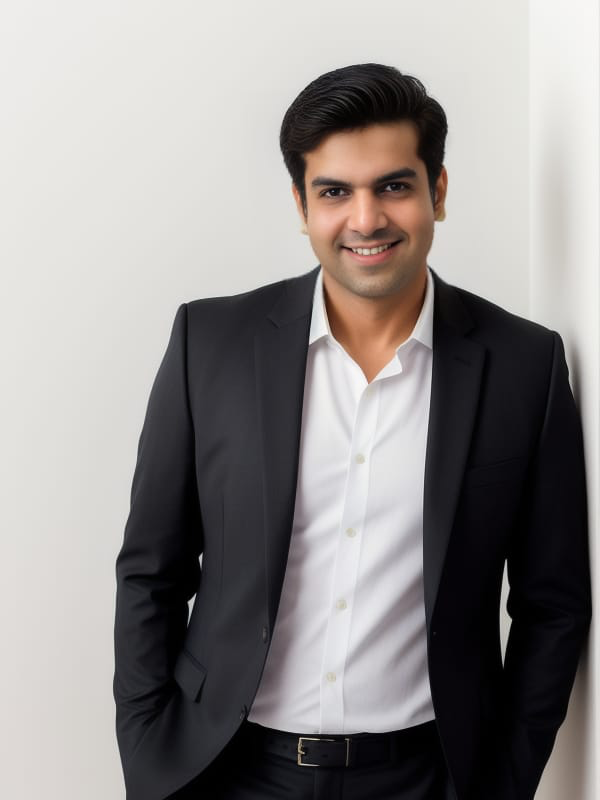In today’s era of fast-paced digital transformation, project management and financial planning are converging like never before. Arjun Chaudhary, a seasoned Senior Product Manager and former consultant at Workday, brings a unique blend of financial acumen and technical expertise to this critical intersection. With a solid foundation in finance, enterprise systems, and AI/ML, Chaudhary’s insights into project leadership and Workday Adaptive Planning (WAP) reflect the demands of the modern enterprise…
“Project management has evolved beyond tracking milestones,” Chaudhary notes. “It’s about aligning investments with strategy, maximizing team collaboration, and using real-time planning tools to adapt to market changes.”
Throughout his roles in financial strategy and technology management, including leadership positions at top-tier firms, Chaudhary has developed deep expertise in enterprise financial modeling, performance analytics, and product optimization. He has advised cross-functional teams on planning cycles, budget forecasting, and project implementation—often using tools like WAP to streamline decision-making.
Why Workday Adaptive Planning Matters
Chaudhary sees Workday Adaptive Planning not just as a tool, but as a business enabler. “The legacy of static spreadsheets can’t keep up with the complexity of today’s financial environments,” he explains. “WAP enables organizations to model, forecast, and pivot in real time.”
WAP supports rolling forecasts, driver-based modeling, and collaborative budgeting—allowing product, finance, and operations teams to align around shared business goals. According to Chaudhary, these capabilities are essential to agile planning and scenario-based decision-making.
“Whether you’re evaluating a new product strategy or planning workforce changes, the ability to model financial impacts instantly is invaluable,” he adds.
Project Management Informed by Financial Intelligence
In his earlier consulting roles, Chaudhary led initiatives involving ERP implementations, data integration projects, and cloud platform strategies. His approach to project management has always been anchored in business value and financial visibility.
“Good project management is inseparable from strategic finance,” he says. “Every Gantt chart or sprint backlog should be tied to ROI, cost control, or growth objectives.”
He’s built predictive forecasting models, supported ROI-based prioritization frameworks, and guided engineering and finance leaders on resource allocation. This data-driven style ensures that project execution aligns with broader organizational performance metrics.
Shifting to Continuous Planning
One of Chaudhary’s major contributions has been promoting the transition from traditional annual budgeting to continuous planning models. Leveraging tools like WAP, he’s helped teams implement rolling forecasts and adaptive models that better reflect evolving market realities.
“These changes don’t just improve forecasts—they change how organizations think,” he says. “Finance becomes more responsive, product teams become more strategic, and collaboration improves.”
This shift has enabled more accurate decision-making, reduced planning cycle times, and supported stronger alignment between financial and operational teams.
Technical Fluency Meets Business Leadership
Chaudhary’s strengths lie in his rare combination of technical proficiency and financial leadership. Proficient in tools such as Tableau, Power BI, SQL, and Python, he builds data pipelines and dashboards that inform strategic decisions. At the same time, he is a skilled communicator—adept at translating complex analysis into executive-ready insights.
His skillset spans advanced financial modeling, stakeholder management, business case development, and planning system optimization. From cloud migrations to AI-enabled forecasting, he’s led digital initiatives that enhance agility and cost efficiency.
Adaptive Planning and the Road Ahead
As organizations become increasingly data-driven, Chaudhary believes platforms like Workday Adaptive Planning will only grow in importance. “Real-time planning is no longer a luxury—it’s a necessity,” he asserts.
He anticipates wider adoption of integrated planning systems that connect financial models with operational data sources, supported by automation and machine learning. In this vision, financial planning becomes dynamic, continuous, and deeply embedded in everyday decision-making.
“Adaptive planning is about more than just better numbers,” he concludes. “It’s about better decisions, faster pivots, and smarter execution.”
With a career grounded in both strategy and execution, Arjun Chaudhary stands as a strong voice for modernizing project and financial management. His practical, system-driven approach serves as a guide for teams navigating the complexities of planning in an age of constant change.
In recognition of his leadership at the intersection of AI and project planning, Arjun Chaudhary was invited as a keynote speaker at the 2024 International Conference on Computational Intelligence, Communication, and Control (IC4). His talk, titled *”Smarter Projects, Real-Time Results: How Adaptive AI Is Redefining Precision, Agility, and Success in Project Management”*, explored how machine learning and predictive analytics are transforming project execution.
In his address, Chaudhary emphasized the critical role of adaptive AI in modernizing project tracking, risk management, and resource allocation—especially in fast-paced hybrid environments. His insights offered a forward-looking perspective on how intelligent, responsive planning systems are reshaping how teams innovate and deliver value.



































